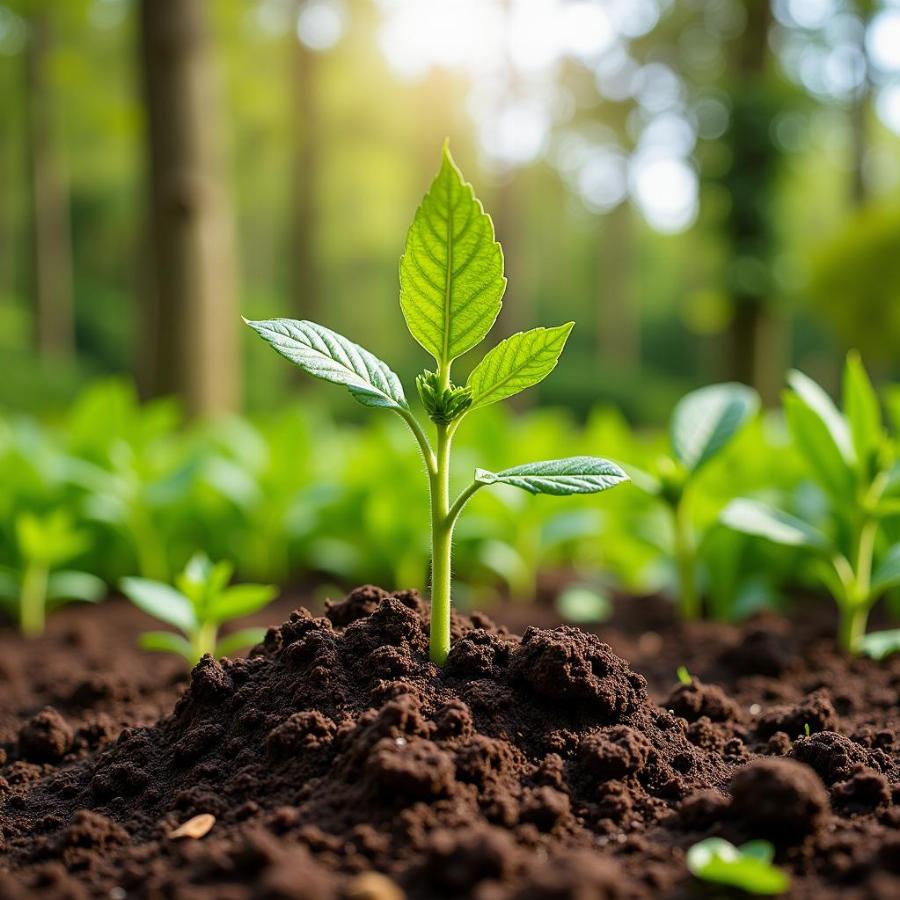Managing dog waste responsibly is a crucial aspect of pet ownership. Using a compost bin for dog poop is an eco-friendly alternative to traditional disposal methods like flushing or using plastic bags. This guide provides a comprehensive overview of composting dog waste, covering everything from choosing the right bin to understanding the process and addressing potential concerns.
Why Choose a Compost Bin for Dog Poop?
Composting dog poop offers several benefits for both the environment and pet owners. It reduces landfill waste, minimizes the use of plastic bags, and transforms dog waste into nutrient-rich compost that can enrich your garden. By composting dog waste, you’re contributing to a more sustainable lifestyle and reducing your carbon footprint. Furthermore, it can be a more cost-effective solution compared to continuously purchasing dog waste bags.
Choosing the Right Compost Bin for Dog Waste
Several types of compost bins are suitable for dog poop. Dedicated dog waste composters are specifically designed for this purpose and often come with features like built-in agitators and ventilation systems. These features facilitate faster decomposition and reduce odor. You can also use a standard compost bin or build your own. When choosing a bin, consider its size, ease of use, and durability. A larger bin is suitable for multiple dogs or larger breeds. Ensure the bin is easy to access for adding waste and removing finished compost. A durable bin can withstand various weather conditions and resist damage from animals.
How to Compost Dog Poop
The composting process involves breaking down organic matter into a nutrient-rich soil amendment. To compost dog poop effectively, you’ll need a few key ingredients: dog waste, sawdust, and water. dog poop in compost bin The sawdust acts as a carbon-rich material that balances the nitrogen-rich dog waste. Layering the dog waste with sawdust helps to control odor and accelerates the decomposition process. Maintaining the right moisture level is also essential for efficient composting. The compost pile should be damp like a wrung-out sponge. Turning the compost regularly helps to aerate the pile and distribute the materials evenly, further speeding up decomposition.
Addressing Common Concerns about Composting Dog Waste
One common concern about composting dog waste is the potential for pathogens. However, properly managed compost reaches temperatures high enough to kill most harmful bacteria and parasites. dog poop compost bin Regular monitoring and turning of the compost pile ensure adequate heat generation. Another concern is odor. Proper layering with sawdust and adequate ventilation can significantly reduce odor. Choosing a bin with a lid also helps to contain any smells.
Expert Insights on Composting Dog Waste
Dr. Amelia Green, a veterinarian specializing in animal waste management, emphasizes the importance of using a dedicated dog waste composter. “Using a dedicated bin helps to prevent cross-contamination and ensures the compost is safe for use in your garden,” she advises.
John Smith, a seasoned composter and dog owner, shares a practical tip: “Adding a layer of dry leaves along with sawdust can further enhance the composting process and help manage moisture levels.”
Making Your Garden Thrive with Dog Poop Compost
Once the composting process is complete, you’ll have a valuable resource for your garden. Dog poop compost is rich in nutrients that can benefit your plants.  Vườn cây phát triển với phân chó However, it’s crucial to use the compost responsibly. Avoid using it on edible plants or areas where children or pets play. Instead, use it to enrich flower beds, shrubs, or trees. This ensures the safety of your family and pets while maximizing the benefits of your composting efforts.
Vườn cây phát triển với phân chó However, it’s crucial to use the compost responsibly. Avoid using it on edible plants or areas where children or pets play. Instead, use it to enrich flower beds, shrubs, or trees. This ensures the safety of your family and pets while maximizing the benefits of your composting efforts.
Conclusion
Composting dog poop is a sustainable and beneficial practice for responsible pet owners. By choosing the right compost bin, following proper composting techniques, and addressing potential concerns, you can effectively manage dog waste while contributing to a healthier environment and a thriving garden. dog poop garbage can Embrace this eco-friendly solution and enjoy the rewards of responsible pet ownership.
FAQ
-
How long does it take to compost dog poop? It typically takes between two to six months, depending on the type of bin, the composting method, and environmental factors.
-
Can I compost cat poop along with dog poop? It’s generally not recommended to compost cat poop due to the potential for parasites that can be harmful to humans.
-
What can I do if my compost bin starts to smell? Adding more sawdust or dry leaves, turning the compost more frequently, and ensuring adequate ventilation can help to reduce odor.
-
Is it safe to use dog poop compost on vegetable gardens? No, it’s best to avoid using dog poop compost on edible plants to prevent potential health risks.
-
Where can I buy a dog waste composter? Dog waste composters are available at many pet stores, garden centers, and online retailers.
-
Can I compost dog poop if I live in an apartment? You might consider using a worm composting system if space is limited.
-
What if I don’t have a garden, what can I do with the compost? You can offer it to a neighbor with a garden or check with your local community garden.
Beaut Dogs is the ultimate resource for dog lovers, offering expert advice and guidance on all aspects of dog ownership. We provide reliable and up-to-date information on dog breeds, care, training, and much more. Visit Beaut Dogs today to learn everything you need to know about caring for your furry friend. When you need support, please contact Email: [email protected] to get detailed and accurate answers from Beaut Dogs.